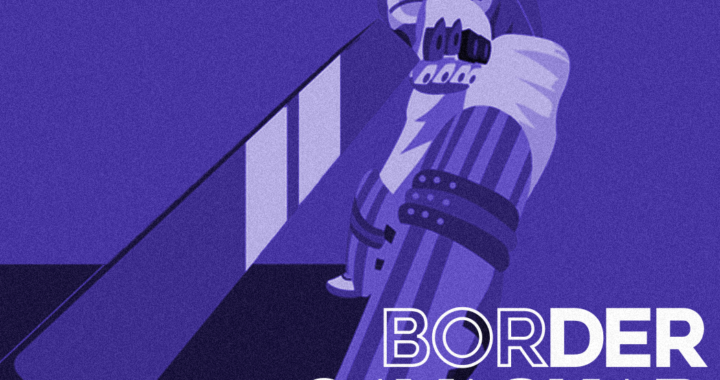Food For Thought

‘Food for thought’ says it all. Thought always aspires to be free-floating, disembodied. Embodied things are governed by laws of necessity. They are necessarily constrained. They can at best adapt to necessity if they are not to perish. Things that want to fly have no choice but to obey the law of gravitation. Not so with thought. It is thought’s refusal to submit to necessity that makes disembodied thought an aspiration. A University is a paradoxical expression of that refusal. The qualifier, ‘free’, in the expression, free thought, is both an unnecessary emphasis and an impossible aspiration. Food for thought, at its best, is an empty metaphor. Human beings, as living organisms, invent what they call civilized methods of scavenging for food necessary for their survival. But disembodied thought dreams of feeding itself on nothing but itself.
I wonder whether that recognition was what led the well-known American poet and educator, H.W. Longfellow, to lament “What has heretofore been the idea of a University with us? The answer is a simple one: Two or three large brick buildings—with a chapel and a President to pray in it“. That was in 1829 after his extended tour of Europe where he found what R.H. Thomas had echoed in his book, Liberalism, Nationalism and German Intellectuals, 1822-47 (1952), “Whereas in the former times men regarded the inquisition of nature as a pleasant but useless employment, and as a harmless pasture for idle heads, they have of late years become daily more convinced of its influence upon the civilization and the welfare of nations and the leaders of the public are everywhere bestirring themselves for the erection of establishments to promote its advancement and extension”. None can be said to be more convinced than Jawaharlal Nehru of that influence upon the civilization and welfare of a politically independent India. His sister, Nayanatara Sahgal observed in her book, Jawaharlal: Civilizing a Savage World, “In his own mind there was no unbridgeable divide between the Occident and the Orient. One had had the opportunity to industrialize and prosper, the other had not, and the gap would close in time. Most significantly, his involvement with India—through actual journeys over the length and the breadth of the country, and his vividly imagined journeys into her past— had an impassioned ingredient that kept its hold on him. An incident towards the end of his life illustrates the strength of his involvement. The family was at the breakfast table at Teen Murti House. A visiting nephew said that the country was in a mess, its problems would never be solved and, he, for one, was getting out to settle abroad. Nehru who had remained silent suddenly spoke in a rage, ‘Go where you like, but if I am born a thousand times, a thousand times I will be born an Indian’. However, not many of his compatriots and generations that followed can claim to be proud of being Indian. Our endless and unmediated fascination with ‘foreign made’ things/thoughts, and our aversion to all things/thoughts desire to improve them if required, betrays, among other things, that lack. It is easy to be cynical and easier to be jingoistic or pretend to be ‘global’. Rootedness is another matter. To be rooted is to know one’s inescapable location in history and geography and to aspire to transcend them, if necessary, by attempting to transform them and not by futile efforts to escape them.
In the beginning of this article I claimed that a University is a paradoxical expression of a refusal to submit to necessity. The paradox got generated right at the moment when ‘inquisition of nature (whatever that term embraced) as a pleasant but useless employment, and as a harmless pasture for idle heads’ was tied to ‘civilization and welfare of nation (whatever those terms encompassed)’. A University can no longer refuse the necessity of its rootedness. A bitter indictment of this situation obtaining in the Universities of the ‘developed’ nations reads thus: “Now, however, the complexion of academia has changed. The academic must bring in money for the half of his time devoted to research, for his equipment and expendables, and for his assistants. The universities have abdicated their old ethical role of keeping academic freedom alive by accepting the new routine of government proposals and contracts. Government functionaries now judge the works and award the rewards. Pharaoh owns all the grain, so to speak. The academics are like Pavlov’s dog salivating at the ringing of the feeder’s bell(the feeder is the contract monitor). One is reminded more of children running after the tinkling bell of the ice cream vendor than of astute intellectuals convening to discuss something of real value” (Pharaoh, Luther, and R&D today, IEEE Spectrum, August 1993). The universities of the ‘developed’ nations, without major discomfort, at least until recent times, have adapted to the laws of necessity as discovered by men in those nations.
The situation in the Universities of the forever developing country identified by the binary India/Bharat is very different. Many of you are too familiar with it to need an elaboration. Those interested may read one account of it in the article, “IITs: The New Cultural Apparatus”, I wrote, sometime in the early 1980s, for Seminar. But, before I conclude on this issue of adapting to necessity I want to bring to your attention what Rabindranath Tagore had said in 1934, in his lecture at the Calcutta University on ‘The Philosophy of Literature’: “The claims of necessity are powerful, and they are innumerable, because our essential requirements hardly keep within their measure… But on the margins of that market place, human-kind looks for a vacant space where the mind says ‘I do not want’—that is I do not want that which serves my desire for accumulation. Hence in spite of the pressures of necessity, we see people amassing the ingredients of the useless— so great to them is the worth of in-utility. Human glory and wealth lie where we have been able to transcend necessity”.
There is a deeper level paradox that attaches itself to the idea of University. In my view, the greatly respected Marxist historian, Eric Hobsbawm who recently passed away, points it out without meaning to. In his address to the students of the Central European University, Budapest, in 1993, had said: “You, as students of this University, are privileged people. The odds are that, as alumni of a distinguished and prestigious institute you will, if you choose, have a good status in society, have better careers, and earn more than other people, though not so much as successful businessmen. What I want to remind you of is something I was told when I began to teach in a University. ‘The people for whom you are there’ said my own teacher, ‘are not the brilliant students like yourself. They are the average students with boring minds (emphasis is mine) who get uninteresting degrees in the lower range of the second class, and whose examination scripts all read the same. The first class people will look after themselves, though you will enjoy teaching them. The others are the ones who need you. It is not merely the case that ‘boring minds’ require the ‘brilliant minds’ for the former to be educated but the condition of possibility of a University is predicated on the necessity of hierarchical classification of thoughts of those with ‘boring minds’ and of those with ‘brilliant minds’. The paradox of the existence of University does not surface only in so far as the question of privilege accorded to the legitimacy of the classification is not raised. No wonder the ambivalent attitude of the Public towards a University finds its cynical expression attributed to George Bernard Shaw: ‘Teaching is ineffective except in those circumstances where it is superfluous’! But more significantly, increasingly diverse groups of ‘boring minds’ from within and outside University are questioning the privilege being claimed by the ‘brilliant minds’. Hobsbawm, to his credit, is aware of this. Continuing the address mentioned above he said: “That applies not only to the University but to the world. Governments, the economy, schools, everything in society, are not for the benefit of the privileged minorities. We can look after ourselves. It is for the benefit of the ordinary people, who are not particularly clever or interesting (unless, of course, we fall in love with one of them), not highly educated, nor successful or destined for success, in fact, nothing very special. It is for the people who throughout history have entered history outside their neighborhoods as individuals in the records of their births, marriages, and deaths. Any society worth living in is one designed for them (emphasis is mine), not for the rich, the clever, the exceptional, although any society worth living in must provide room and scope for such minorities. But the world is not made for our personal benefit, nor are we in the world for our personal benefit. A world that claims that this is its purpose is not a good world and ought not to be a lasting one”.
To design the world we want to bring into existence what we need are languages and their vocabularies that can capture the salience of embodied thoughts. Not platform independent languages, not vocabularies of us, them, privilege, minorities, majorities, they need you, boring minds, brilliant minds… The pre-linguistic, sensuous capacity of an infant to repose trust in its mother and the latter’s capacities for care and concern are already invitations to nurture them and to the possibilities of languages appropriate to making a world worth living in. A University will cease to be a paradox when it begins to speak such languages.

 The Mess-y Situation
The Mess-y Situation  Ping! merges with Blogs@IIIT
Ping! merges with Blogs@IIIT  Cricket Corner: Looking Ahead to the Border-Gavaskar Trophy (Pt III)
Cricket Corner: Looking Ahead to the Border-Gavaskar Trophy (Pt III)  Cleaning up the Mess?
Cleaning up the Mess?  Qu’ils mangent de la grenouille! (Let Them Eat Frogs!)
Qu’ils mangent de la grenouille! (Let Them Eat Frogs!)